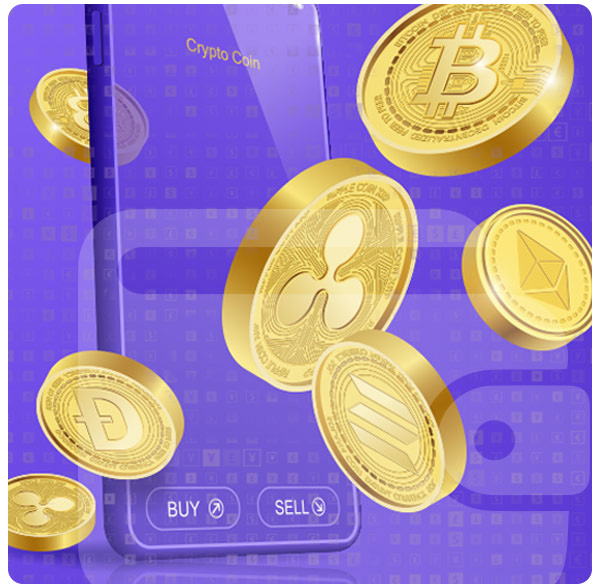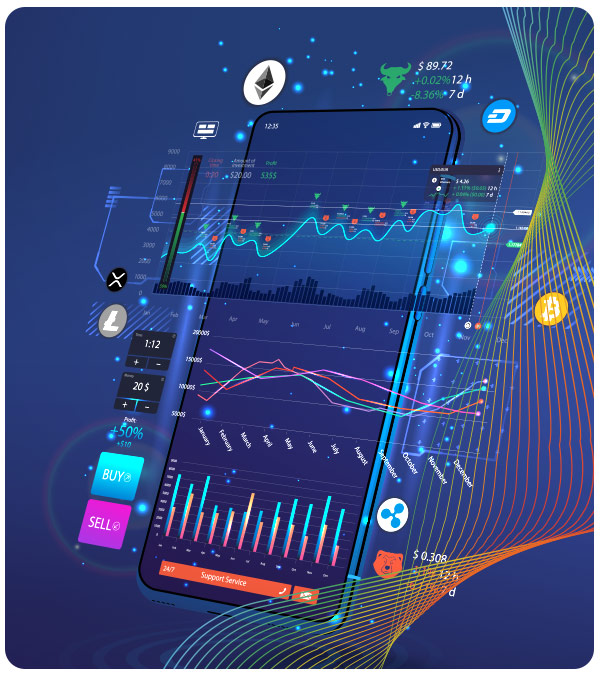
Consumers that don't have access to a bank account face many challenges. On top of the financial hardships they encounter, simple tasks like paying bills and cashing checks are more time-consuming and costly.Not to mention, the unbanked have an increased chance of losing their money due to carrying loose cash around.But why do people choose not to have a bank account? And for those who can't feasibly work with a financial institution, what are other solutions they can use to manage their money?
The Unbanked and Underbanked.
Unbanked: A term used to describe adults who do not use traditional banks or banking institutions for their needs. An unbanked person will typically pay for goods or services in cash or prepaid debit cards. The unbanked will not have insurance, pensions or any other type of money-related service in a professional capacity.
Underbanked: The underbanked are those people who do have a traditional bank account, but they rely on alternative financial services, which include money orders, check-cashing services and payday loans instead of conventional loans and credit cards to manage their finances. These people are underbanked most of the time due to a lack of resources available, and the underbanked population is worldwide.
Globally, about 1.7 billion adults remain unbanked even though ⅔ of them own a mobile phone that could help them access financial services. This means that nearly 2 billion adults globally don't have a checking account, despite having the technology to easily get one.
In American households, more than 1/3 of adults are either unbanked or underbanked (lacking the financial resources to meet their needs). According to a Federal Reserve report, 16% of adults are underbanked, while 6% of adults are unbanked. Over half of these households consider not having enough money to keep in the bank as the main reason they avoid financial institutions. Other members of the unbanked population either don't trust banks, point out the lack of banks convenient to their location, don't trust financial institutions, or are trying to avoid debt collection. In recent research from Mintel, over 2 million Canadians turn to alternative loan providers because they don't qualify for a loan from a traditional bank. Although this doesn't indicate these people are underbanked by choice, there are some perks to using alternative providers.
Leading Fintech solutions provide this segment through modern technologies such as blockchain, cryptocurrency, and eWallets, allowing for financial agnostic inclusion worldwide.
The Future of the Unbanked and Underbanked.
The evolution of blockchain and cryptocurrencies has opened the world to new opportunities to enrich people's lives. The number of active blockchain wallet users has grown to 26 million and is ever-expanding. And for a good reason. The most critical aspect of blockchain is the decentralized functionality for digital applications – providing peer-to-peer functionality.
Blockchain technology can remove unnecessary third parties and intermediaries such as banks. Blockchain can step in where traditional banks are afraid to take risks. It provides unprecedented levels of accessibility, allowing it to bring banking to deprived citizens on a larger scale. Suppose I want to send money to someone on the other side of the world. In that case, I could easily and quickly send Bitcoin or altcoins without the need for a third party to facilitate that transaction or be required to pay a more significant fee to convert the currency.

Whilst traditional banking institutions are still clinging to their ancient methods, other companies have taken it upon themselves to pave the way for new technology and innovation. Some fintech companies are expanding past fiat-centric solutions and creating crypto bank accounts and crypto banking. This new type of banking allows users to store their crypto assets and enable customers worldwide to use them for any purpose they choose.
Also, building savings or receiving money can be incredibly difficult for those who don't have access to a bank account or the money to fund an account - one of the reasons why some blockchain companies are working towards creating a more inclusive financial future. Blockchain and crypto can lower the operational costs to serve areas traditional banking can't cover. This emerging technology can support micro-transactions, unlike traditional financial institutions. With decentralized finance (DeFi), it can lower the operational costs of these financial institutions, which means micro-transactions will no longer be a problem.
Blockchain and crypto remove financial institutions from the equation. Instead, they support peer-to-peer (P2P) transactions and automation. These trustless transactions offer a more versatile and flexible model that increases access to financial services. With cryptocurrency and DeFi services, consumers can obtain, trade, and store crypto such as BTC and ETH in eWallets. This technology also allows them to send and receive money from mobile devices, provides them access to alternative credit markets, and gives them the ability to invest in global asset markets.

Solutions for Crypto Holdings.
Crypto holdings solutions safeguard a consumer's cryptocurrency assets. They typically contain a complex combination of numbers, letters, and symbols which can be highly difficult to remember and are often susceptible to hacks. For many crypto exchanges, consumers have private keys, which they can use to conduct transactions or access crypto holdings.
E-wallets (a.k.a. virtual wallets) offer a more secure way to store crypto. They have additional security features such as encryption and two-factor authentication. There are two main types of crypto wallets: hot storage wallets and cold storage wallets. Hot storage crypto wallets connect directly to the internet, whereas cold wallets allow consumers to store their cash offline.
Solutions for Crypto-Backed Credit Cards and Lines of Credit.
Crypto credit cards allow consumers to access different cryptocurrencies with a single card. They offer the best of both worlds for those looking to access digital assets and fiat currencies.
Consumers can send their digital assets to a dedicated crypto wallet and load them onto a crypto-backed credit card. Using crypto-backed lines of credit, if consumers don't want to sell their crypto, they can borrow against their assets at a specific interest rate. And with some products, they can earn a certain cashback percentage on their first credit.
Rethink Banking – eWallet That Holds Fiat.
Fiat eWallets allow consumers to deposit money into their account and have it available anytime they purchase cryptocurrencies. They can also sell their crypto to their fiat wallet and withdraw money anytime convenient for them or instantly send peer-to-peer fiat transactions.
Use of Mobile Technology to Bridge the Banking Gap.
Mobile technology can reduce the global unbanked by ⅓. And about 6 in 10 unbanked consumers have smartphones. This means that a majority of them have access to a mobile device, allowing them the opportunity to find alternatives to banking such as blockchain and crypto.
Mobile technology offers a range of capabilities for unbanked consumers. For example, mobile payment technology gives consumers the ability to make online and in-store purchases and send or receive money from their smartphones. As a result, this increases the financial inclusion for consumers without bank accounts.

FinTech can leverage AI and machine learning to deliver a range of financial solutions to consumers that they never had access to before. FinTech solutions offer other capabilities that allow consumers to sign up for a service that automatically saves or invests a certain amount of money. It can also connect them to a broader pool of lenders who use advanced data to extend credit with better terms than what consumers can find elsewhere.

Take Action on Your Financial Future Today.
Blockchain and cryptocurrency bridge the gap between the unbanked, underbanked, and financial services. Fintech companies like Ripple, which also created its cryptocurrency, have become increasingly popular due to their ability to increase the speed of transactions and reduce costs. Connect Financial is another leading innovator in the space. It has an ecosystem that allows users to use their fiat and digital assets to advance their financial goals in their control and flexibility needs.
People worldwide can instantly receive a level of credit that meets their needs without losing appreciation of their digital assets. Paired with various digital wallets to buy and sell coins, borrow against your digital assets, store fiat, earn yield returns or store your assets in an offline, insured vault. Connect Financial provides everything to achieve optimal financial flexibility. For more information, discover Connect Cards.